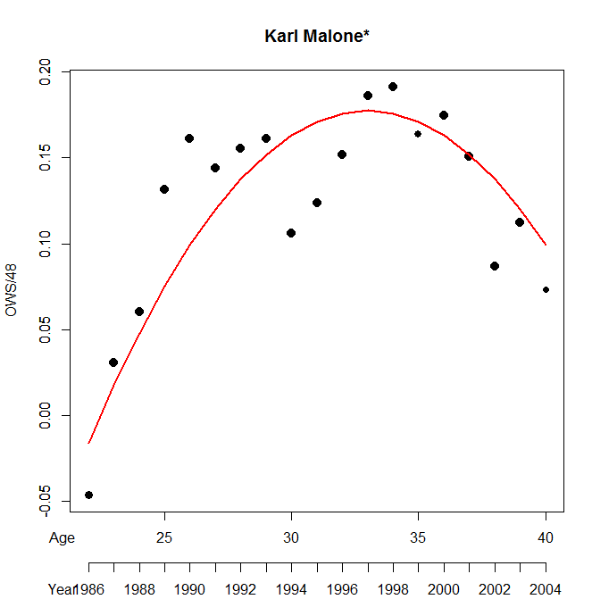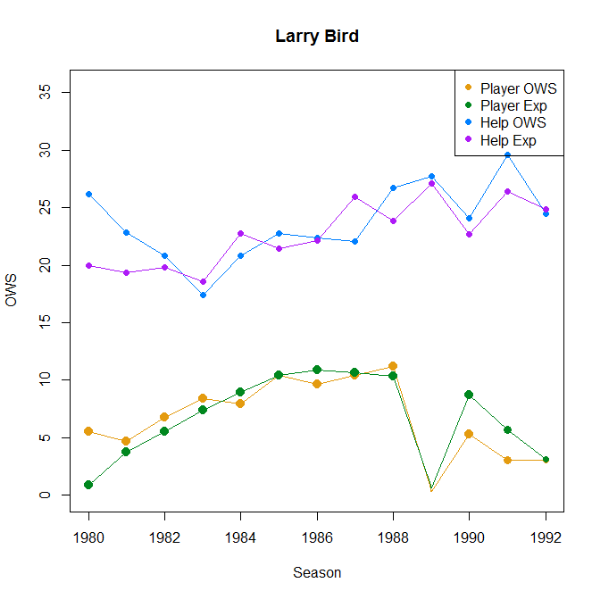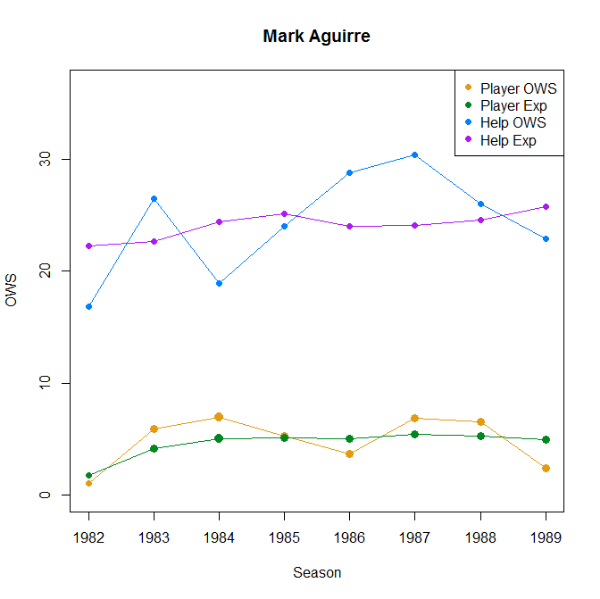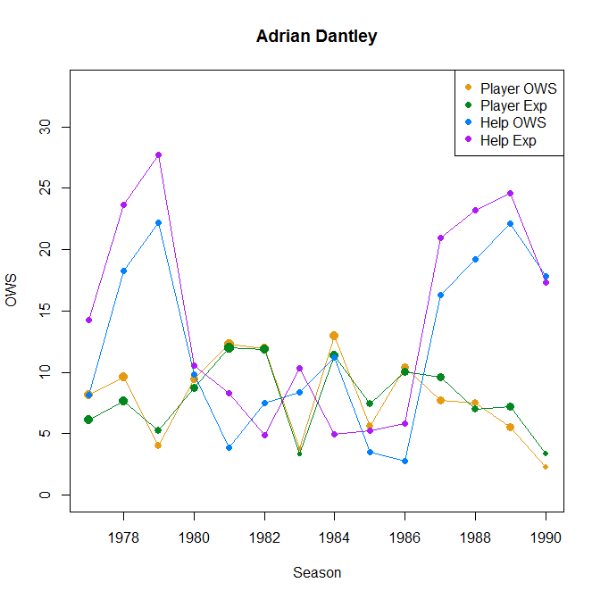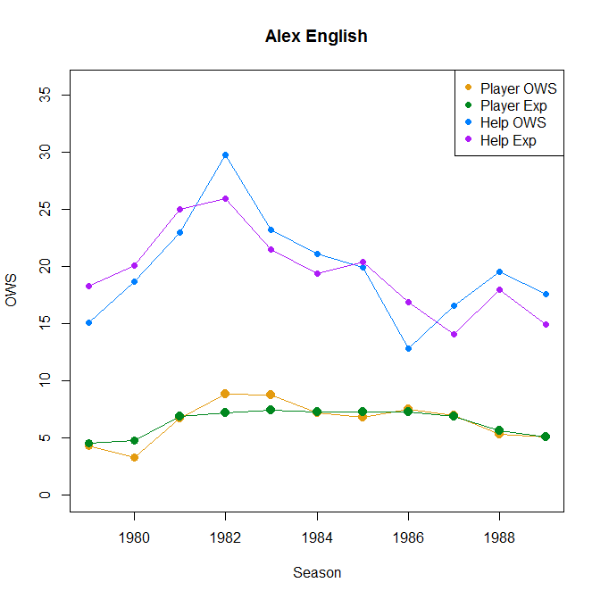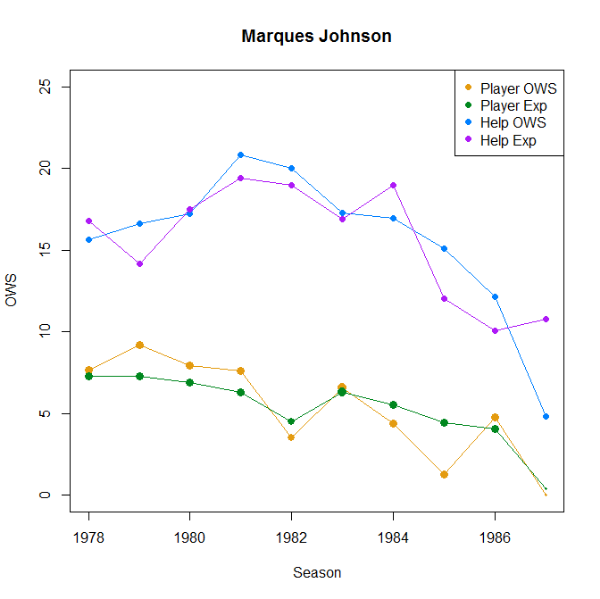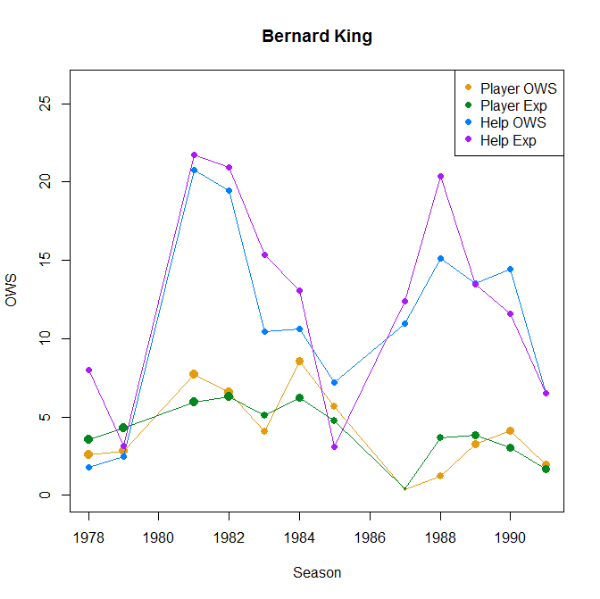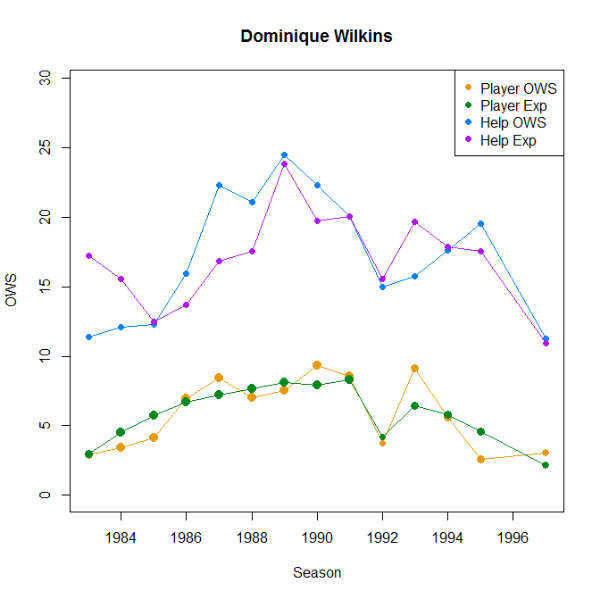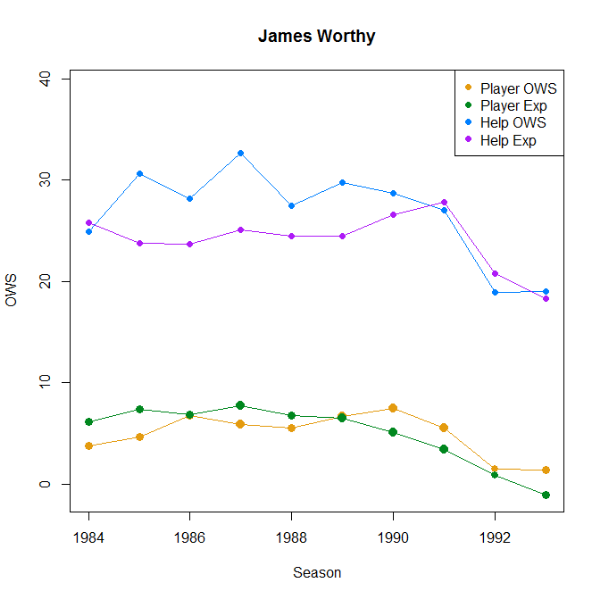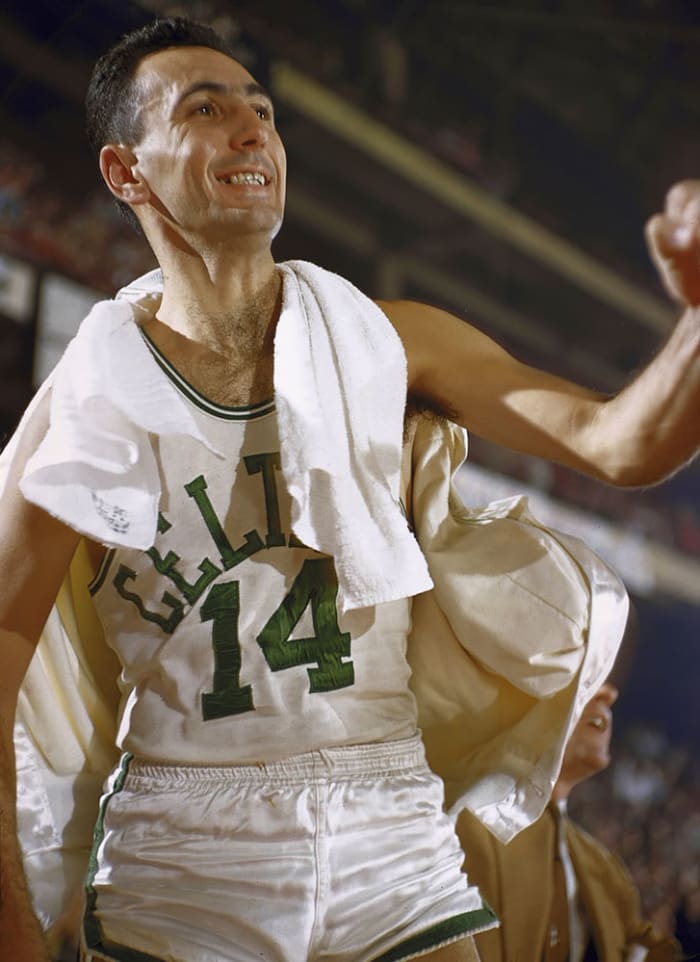So, given Cousy's traction, I wanted to share these excerpts from Bill Simmons' Book Of Basketball, specifically from his Pyramid player ranking. One is for Cousy, the other(the shorter one) is for Sharman.
I share these with the following acknowledgements:
1. Simmons' approach was not as empirical as ours(i.e. he, IIRC, didn't use any non-box stats, but then again, the book was written in 2008).
2. He is, of course, a legendary Celtics homer, so of course he's gonna love two Celtics.
Even so, he makes some points worth repeating here.
The Cooz should start fading historically soon - if it hasn't happened already - which is one of the reasons I want to write this book. We can't let that happen to a beloved Holy Cross grad. Future generations will point to his field goal shooting and say, "By any statistical calculation, Nash and Stockton were decidedly better." Fortunately, I'm here. Allow me to make the case for Cooz in four parts:
1. His poor shooting (37.5 percent for his career) was deceivingly abysmal because he peaked in the fifties, an unglorious decade for field goal percentages and scoring. Of the 66 players who played at least 300 games from 1951 to 1960, Ken Sears led everyone(45 percent), Freddie Scolari brought up the bottom(33 percent), and Cousy ranked forty-second(37 percent). Stretch that to a 500-game minimum and twenty-two players qualify: Neil Johnston leads the way(44 percent), Jack McMahon brings up the rear (34 percent) and Cousy ranks fifteenth (just three spots behind alleged deadeye Dolph Schayes). Comparing him to his point guard rivals from 1951 to 1963 (400-game minimum), Gene Shue shot 39.9 percent, Dick McGuire shot 39.6 percent, Bobby Wanzer shot 39.2 percent, Cousy shot 37 percent, Andy Phillip shot 36.8 percent, Slater Martin shot 36.5 percent ... and Cousy’s teams consistently averaged more shots and points than anyone else.
Fast-forward to the high-scoring eighties: of the 124 players who played 500 games or more from 1981 to 1990, Artis Gilmore led the way at 63 percent, Elston Turner brought up the back at 43 percent and Isiah Thomas ranked 105th (46 percent). If you narrow the list to point guards (twenty-three in all), Mo Cheeks ranks first (53 percent), Darnell Valentine ranks last (43 percent) and Isiah ranks fifteenth. In other words, Isiah was actually a worse shooter for his era than Cousy. J-Kidd sucked more than both of them combined, the seventh-worst shooter from 1995 to 2008 of anyone who played 500 games or more (40 percent). While we’re on the subject, Baron Davis (41 percent career), Kenny Anderson (42 percent), Iverson (42.6 percent) and Tim Hardaway (43 percent) were poorer shooters for their respective eras. So you can’t penalize the Cooz for peaking during a quantity-over-quality era of shot selection.
2. You know how everyone makes a fuss about that stupid Tiny Archibald record? Cousy finished second in points and first in assists in ’54 and ’55; unlike Tiny’s Royals, the Celtics made the playoffs both times. He cracked the top four in scoring four straight times (’52–’55), finished in the top ten in scoring four other times, never finished lower than third in assists in thirteen seasons and won eight straight assist titles. Let’s say we assigned points for every top ten finish in scoring or assists per game—10 points for first place, 9 for second and so on, with 0 points for anything outside the top ten —then tallied up the combined points for each player’s career. Here’s how the top point guards of all-time finish with that scoring system: Oscar, 181; Cousy, 164; Stockton, 139; West,102; Kidd, 96; Magic, 94; Wilkens, 89; Tiny, 87; Isiah, 64;Payton, 51. Just for kicks, a second list with the same scoring system, only first-team All-NBAs are worth 10 and second-team All-NBAs worth 5: Oscar, 281; Cousy, 274; West, 212; Magic, 189; Stockton, 189; Kidd, 151; Tiny, 127; Isiah, 104; Payton, 96; Wilkens, 89.
I hate the phrase “devil’s advocate” because it makes me think of that excruciating Keanu Reeves/Al Pacino movie that couldn’t even get the Charlize Theron nude scene right, but screw it: can you think of a valid reason why West (one title) and Oscar (one title) have endured historically as all-timers, but everyone has been so anxious to dump Cousy (six titles)? You can’t play the “he couldn’t have hacked it once the game sped up” card (like we used with Mikan earlier) because Cooz and Bob Pettit were the only NBA superstars who thrived pre-Russell and post-Russell. (If anything, Cooz was better off in a run-and-gun era—he led the league in assists as late as 1959 and 1960 and made second-team All-NBA in the final two years of his career.) You can’t play the “he couldn’t shoot” card because that’s untrue. You can’t play the “Russell made his career” card because he was better statistically pre-Russell and made just as many All-NBA teams without him. As recently as 1980, Cousy made the NBA’s 35th Anniversary twelve-man team. So what happened?
3. Cousy got screwed historically by his first four years (the pre-shot-clock era, when nobody scored more than 75–85 points a game) and the last five years (when they started counting assists differently). Cousy averaged 8.9 assists for a ’59 Celtics team that averaged 116.4 points per game; John Stockton averaged 12.4 assists for a ’94 Jazz team that averaged 101.9 points per game. How am I supposed to make sense of that? How do we know Cousy wasn’t averaging 15–16 assists per game if we applied the current criteria? By all accounts, nobody ran a better fast break and the stats reflect it: eight straight titles and four times where he finished with at least 30 percent more dimes than the number two guy. Cousy finished his career in 1963 with 6,945 assists; the next-highest guy(Dick McGuire) had 4,205. So it’s not like he was a little bit better than his peers, or a tad better, or even just better. He was significantly better.
If you're wondering where the fourth part is("Allow me to make the case for Cooz in four parts"), I omitted it because it was just about Cousy's influence on the game, how he paved the way for every PG after him, etc, and I know that stuff isn't really the point of this project.
I think he makes some compelling arguments, particularly the thing about assist criteria changing(which might be deflating his assist numbers) and the fact that the Celtics system w/Russell focused on shooting as quickly as possible and not on taking the best shots and thus that this could impact scoring efficiency.
And Sharman:
The NBA's best two-guard until Jerry West showed up; the first shooter to regularly crack 40 percent from the field and shoot 90 percent from the line; half of the most successful backcourt in the history of the league. Factoring in team success, individual careers, statistics, and total games played together, we haven't seen anything approaching Cousy and Sharman.(Lemme know when we'll see two guards from the same team make first-team All-NBA for four straight years.) When Sharman retired in 1961, only twenty-two noncenters had played 500 games or more at that time. Of those twenty-two players, Sharman ranked first in free throw percentage(88 percent) and second in shooting percentage(42.6 percent, just behind Bob Pettit); he was the only guard to crack 40 percent from the field. So Sharman was significantly better than any other two-guard from his era; the numbers, awards, and titles back this up, as does the fact that Sharman held off Sam Jones for four solid years. The six foot two Sharman even moonlighted as a third baseman in Brooklyn's farm system from 1950 to 1955, getting called up at the end of the '51 season and being thrown out of a game for yelling at an umpire, becoming the only player in major league history to get ejected from a game without ever actually appearing in one. Bizarre. But that gives you an idea of his athletic pedigree. He was also infamous for being the first player to (a)study opponents' tendencies and keep notes on them and (b) create a daily routine of stretching, exercising, and shooting and make a concerted effort to stick to that routine.
What doesn't live on historically was Sharman's defense. By all accounts, he was that decade's best lockdown defender and a feisty competitor who had more fights than Jake LaMotta. Jerry West once remembered being a rookie and making seven straight shots against an aging Sharman, then Sharman preventing an eight shot simply by taking a swing at him. As West told the L.A. Times years later, "I'll tell you this, you did not drive by him. He got into more fights than Mike Tyson. You respected him as a player." Sounds like my kind of guy. I'd tell you more, but Sharman retired when my mother was twelve.
The bolded parts(my emphasis) illustrate that not only was he one of the best scorers of his era(and if you believe the accounts/reputation, best perimeter defenders), but also that he was an outlier in terms of athleticism, work ethic, and basketball intelligence.





















